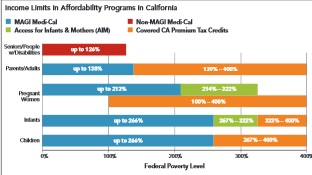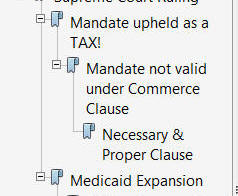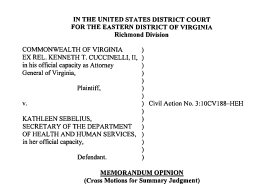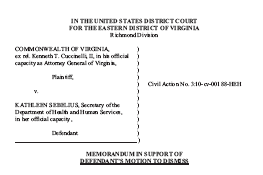Health Care Reform Mandate Penalty UPHELD as a TAX
NFIB vs Sebelius
Introduction
Video summary from President Obama of the Supreme Court decision to uphold ACA/ObamaCare/Health Care Reform as a Tax
View 193 page Supreme Court Decision NATIONAL FEDERATION OF INDEPENDENT BUSINESS ET AL. v. SEBELIUS, SECRETARY OF HEALTH AND HUMAN SERVICES, ET AL with our highlights
Congress’s power to regulate economic activity
“Contrary to what opponents argue (10th Amendment states’ rights) the new law falls well within Congress’s power to regulate economic activity under the:
- Commerce Clause
- Necessary and Proper Clause
- General Welfare Clause,”
– according to Whitehouse adviser Stephanie Cutter (Time.com 12/14/2010)
U.S. District Court Judge Roger Vinson on 1/31/2011 ruled that the federal health reform law’s individual mandate is unconstitutional, as the mandate exceeds Congress’ power to regulate interstate commerce, the Washington Post reports (Aizenman/Goldstein, Washington Post, 2/1). Vinson also voided the entire law because he concluded that the mandate is “inextricably bound” to other provisions in the law (Sack, New York Times, 1/31). The Judge refused to grant the request to suspend further implementation of the law, saying that such an order is unnecessary because of a “long-standing presumption” that the federal government will comply with judicial rulings. (Washington Post, 2/1). (California Healthline.org)
Explanation from Dorsey & White LLP McGuireWoods
Constitution’s principle of federalism by providing that powers not granted to the federal government nor prohibited to the states by the Constitution of the United States are reserved to the states or the people under the 10th amendment. (wikipedia.org)
The Congress shall have Power – To make all Laws which shall be necessary and proper for carrying into Execution the foregoing Powers, and all other Powers vested by this Constitution in the Government of the United States, or in any Department or Officer thereof. (Article One of the United States Constitution, section 8, clause 18)
A governing bodies constitution generally allows them to enact laws as they see fit to promote or provide for the general welfare of the people. In some countries, this has been used as a basis for legislation promoting the health, safety, morals, and well-being of the people governed thereunder (also known as the police power).
Such clauses are generally interpreted as granting the state broad power to regulate for the general welfare that is independent of other powers specified in the governing document. ( wikipedia.org)
According to the Tenth Amendment, the government of the United States has the power to regulate only matters delegated to it by the Constitution. Other powers are reserved to the states, or to the people (and even the states cannot alienate some of these).
In modern times, the Commerce Clause has become one of the most frequently-used sources of Congress’ power, and thus its interpretation is very important in determining the allowable scope of federal government.
In the 20th century, complex economic challenges arising from the Great Depression triggered a reevaluation in both Congress and the Supreme Court of the use of Commerce Clause powers to maintain a strong national economy.
In Wickard v. Filburn (1942), in the context of World War II, the Court ruled that federal regulations of wheat production could constitutionally be applied to wheat grown for “home consumption” on a farm — that is, wheat grown to be fed to farm animals or otherwise consumed on the farm. The rationale was that a farmer’s growing “his own wheat” can have a substantial cumulative effect on interstate commerce, because if all farmers were to exceed their production quotas, a significant amount of wheat would either not be sold on the market or would be bought from other producers. Hence, in the aggregate, if farmers were allowed to consume their own wheat, it would affect the interstate market in wheat.
In Garcia v. San Antonio Metropolitan Transit Authority (1985), the Court changed the analytic framework to be applied in Tenth Amendment cases. Prior to the Garcia decision, the determination of whether there was state immunity from federal regulation turned on whether the state activity was “traditional” for or “integral” to the state government. The Court noted that this analysis was “unsound in principle and unworkable in practice,” and rejected it without providing a replacement. The Court’s holding declined to set any formula to provide guidance in future cases. Instead, it simply held “…we need go no further than to state that we perceive nothing in the overtime and minimum-wage requirements of the FLSA … that is destructive of state sovereignty or violative of any constitutional provision.” It left to future courts how best to determine when a particular federal regulation may be “destructive of state sovereignty or violative of any constitutional provision.”
In United States v. Lopez 514 U.S. 549 (1995), a federal law mandating a “gun-free zone” on and around public school campuses was struck down because, the Supreme Court ruled, there was no clause in the Constitution authorizing it. This was the first modern Supreme Court opinion to limit the government’s power under the Commerce Clause. The opinion did not mention the Tenth Amendment, and the Court’s 1985 Garcia opinion remains the controlling authority on that subject.
Most recently, the Commerce Clause was cited in the 2005 decision Gonzales v. Raich. In this case, a California woman sued the Drug Enforcement Administration after her medical marijuana crop was seized and destroyed by Federal agents. Medical marijuana was explicitly made legal under California state law by Proposition 215; however, marijuana is prohibited at the federal level by the Controlled Substances Act. Even though the woman grew the marijuana strictly for her own consumption and never sold any, the Supreme Court stated that growing one’s own marijuana affects the interstate market of marijuana. The theory was that the marijuana could enter the stream of interstate commerce, even if it clearly wasn’t grown for that purpose and it was unlikely ever to happen (the same reasoning as in the Wickard v. Filburn decision). It therefore ruled that this practice may be regulated by the federal government under the authority of the Commerce Clause. (wikipedia.org)
15 U.S.C. §§ 1011-1015, is a United States federal law that exempts the business of insurance from most federal regulation, including federal anti-trust laws to a limited extent. The McCarran–Ferguson Act was passed by Congress in 1945 after the Supreme Court ruled in United States v. South-Eastern Underwriters Association that the federal government could regulate insurance companies under the authority of the Commerce Clause in the U.S. Constitution.
The Act was sponsored by Senators Pat McCarran (D-Nev.) and Homer Ferguson (R-Mich.) (wikipedia.org) .
MISC
Kaiser Family Foundation FULL decision 193 pageswith Steve’s Annotations & Bookmarks
PPACA Litigation Blog
Aetna Video Need even more reforms – pay MD’s for HEALTHIER patients
Argument FOR Constitutionality (New York Review of Books)
2.21.2012 Court might delay ruling till 2014, as a tax can’t be declared unconstitutional till it’s been collect.
9.13.2011 Pennsylvania Judge Rules Mandate Unconstitutional cnn.com washingtonpost.com/
Appeal won’t be fast tracked in the US Supreme Court, announced 4/25/2011. KHI.org
U.S. District Judge Henry Hudson ruled that the provision in the new law that forces individuals to purchase health care insurance is unconstitutional.
White House and outgoing House Speaker Nancy Pelosi expressed confidence that the law would remain intact. Pelosi noted that Judge Hudson’s decision does not stand in the way of other parts of the reform, which are moving forward.
White House.Gov Affordable Health Care Act YouTube Channel
Issue under Clinton’s Health Security Act
Summary by O’Neill Institute Mark Hall JD
New Law effective 2014 
Commonwealth of Virginia Complaint for Declaratory & Injunctive Relief
Commonwealth of Virginia v Sebelius Sebelius Points & Authorities to Dismiss
Cato Institute amici curiae brief Washington Legal Foundation



